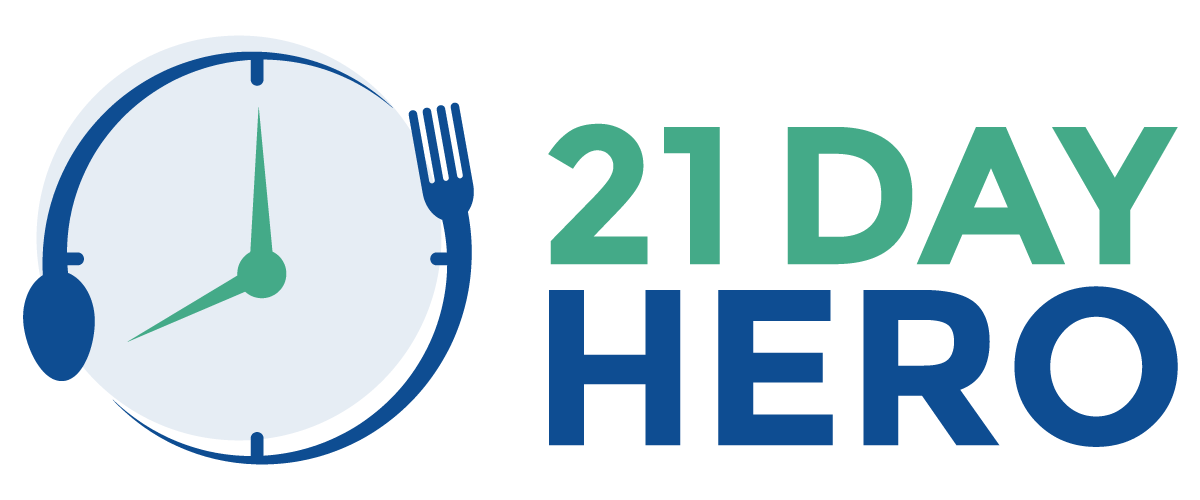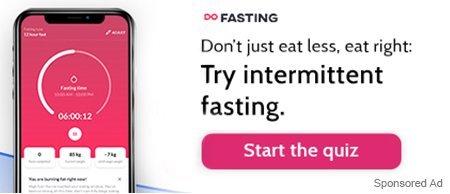What is Glucomannan | How Does Glucomannan Help Weight Loss | Glucomannan Benefits | Glucomannan Side Effects | How Should You Take Glucomannan | Glucomannan Sources
Losing weight is tough. It requires self-control, determination, and time to lose weight. Perhaps for this reason, people look for easier ways to lose weight.
Amidst this scramble, various brands start to take advantage by claiming to help you lose weight easily. You can find a number of weight loss products in the market that assure easy weight loss without any risks. But are these brands straightforward to be trusted while finding reliable information about them can be pretty hard? And how effective is glucomannan for weight loss?
Glucomannan is a dietary fiber promoted as a health supplement claiming to support weight loss, treat constipation, and lower cholesterol levels. But is glucomannan actually effective in losing weight, or is it just another trend? Is glucomannan safe? In this article, let’s go deeper and explore the evidence.

What is Glucomannan?
Glucomannan is a dietary plant fiber extracted from the roots of the konjac plant commonly known as elephant yam. Originating from Southeast Asia, this plant fiber has been long used as a food additive in products like pasta, noodles, and sweets as an emulsifier, thickener, and binding agent. However, it is now being promoted as a dietary supplement, especially for weight loss.
But how does glucomannan aid in weight loss? Glucomannan possesses a unique property as a viscous fiber. It can absorb up to 50 times its weight in water. (1)
When glucomannan is consumed, it expands inside the stomach which may help you feel full and eat less. This may result in weight loss.
If you are following intermittent fasting, you can incorporate glucomannan fiber into your regimen. Because this plant fiber may help relieve hunger pangs and help you abstain from food for an extended period.
How Does Glucomannan Help Weight Loss?
As a viscous fiber, glucomannan may help you lose body weight in various ways.
Supports a healthy gut: Glucomannan supplements are found to keep your digestive tract in good health and support a balanced gut. Research suggests that glucomannan promotes the growth of beneficial gut bacteria which is essential for a healthy microbiota. (2) (3)
When your gut is balanced it helps lose weight by reducing the appetite and slowing down the absorption of dietary fats.
Helps you feel full: The rich fiber content in glucomannan is known to elevate the feelings of fullness and satiety and acts as an appetite suppressant. Further, glucomannan has a low-calorie content, which means it does not impact the overall calorie intake. (4)
It reduces unnecessary calorie consumption: People eating a lot of fiber tend to consume fewer calories, thanks to its appetite-suppressing effects. When you consume fewer calories, managing weight becomes easier.
Slows the stomach emptying: Apart from reducing appetite, glucomannan helps slow down gastric emptying which would contribute to maintaining the feeling of satiety between meals. This can result in weight loss. (5)
Encourages portion control: Consuming glucomannan right before the meal would take up some space in your stomach and make you feel satiated faster. This can be an effective way to eat less, especially when you have a habit of eating too much.
Relieves hunger pangs: As discussed earlier, glucomannan helps relieve hunger pangs. This can be helpful for those who practice intermittent fasting, especially for beginners struggling to acclimatize to the new eating regimen.
Reduces appetite: Glucomannan acts as an effective appetite suppressant by creating a sense of fullness. When it comes in contact with water, it expands and stretches the walls of the stomach and signals the brain that a meal has already been consumed. In other words, it tricks your brain that you have already eaten and are full.

Other Glucomannan Benefits
Besides helping in weight loss, glucomannan has other health benefits as well, which include:
Lowering Cholesterol
Glucomannan also helps in reducing blood cholesterol by preventing its absorption. As per studies, glucomannan supplements may help lower your LDL (Low-Density Lipoprotein) cholesterol levels, total cholesterol, and triglyceride levels. (6).
Since High LDL levels are linked to the risk of increased heart disease and stroke, consuming Glucomannan can be beneficial for you in the long term.
Lowers Blood Sugar
Glucomannan can help regulate blood sugar levels by slowing down gastric emptying and delaying carbohydrate absorption. This may enhance insulin sensitivity, help maintain blood sugar levels, and manage weight by reducing food cravings. (7)
To know how intermittent fasting can improve blood sugar regulation and insulin sensitivity read – Intermittent Fasting And Diabetes.
Helps Relieve Constipation
Being a soluble fiber, glucomannan helps relieve constipation and diarrhea by adding bulk to the stool and making it pass smoothly. In other words, glucomannan acts as a laxative. (8)
Side Effects of Glucomannan
Although glucomannan is considered safe to consume, there may be a few side effects that include:
- Bloating
- Gas
- Stomach cramps
- Esophageal or intestinal obstruction
- Diarrhea
To minimize the risk, it is recommended to drink an adequate quantity of water while taking glucomannan supplements. Further, considering glucomannan powder rather than pills would be beneficial as pills get expanded when come in contact with water, and increase the risk of blockages.
Glucomannan may interfere with the absorption of certain medications. Hence, it is recommended to take glucomannan after consulting with your healthcare professional to avoid any potential side effects.

How Should You Take Glucomannan?
Studies suggest that, daily 2 to 4 grams of Glucomannan should be consumed with a glass of water before food to experience weight loss. (9)
If you are using glucomannan supplements to treat conditions like insulin resistance, type II diabetes, and dyslipidemia, the dosage should be between 4 to 13 grams per day. However, consulting with a healthcare professional would be recommended before using Glucomannan.
Although there are no official guidelines for how to consume Glucomannan, it is essential to read the instructions carefully provided by the manufacturer on the given supplements.
You should be careful while taking glucomannan as it can absorb up to 50 times its weight in water. Hence, it may result in blocking your throat or esophagus if taken incorrectly.
Best Sources of Glucomannan and Other Soluble Fiber
We know that soluble fiber is an important component of a healthy diet because it slows down digestion and makes you feel full for longer. Apart from that it has numerous health benefits including improved digestive and heart health, and encouraging a healthy gut by feeding the good bacteria.
Though glucomannan is one of the best sources of soluble fiber, many other sources of soluble fiber are also available. They may include the following:
Shirataki Noodles
Shirataki noodles have gained popularity in recent years because of their low-calorie content. It is often used as an alternative to traditional pasta or noodles. Shirataki noodles are also made from konjac root and contain about 10 calories per serving. (10)

Beans and Legumes
These are a great source of viscous fiber. Additionally, they are rich in plant protein, which can be a good source of protein for vegetarians. Examples of high-fiber beans and legumes include peas, chickpeas, soybeans, black beans, lentils, and peanuts.
100 grams of beans and legumes provide up to 10 grams of fiber along with essential nutrients. (11)
Oats, Rye, and Barley
These are cereal grains rich in both soluble and insoluble fibers. Particularly barley is rich in beta-glucan, which is a soluble fiber known to reduce cholesterol levels. Oatmeal is a great option to add fiber and healthy nutrients to your regimen. (12)
Supplements
Although it is important to get soluble fiber from food, fiber supplements also work wonders to lose weight, especially for overweight individuals. For example, glucomannan pills or powder expand in your stomach and make you feel satiated for longer. This helps you control your appetite and manage weight.
Using glucomannan supplements along with intermittent fasting can be a great option for weight loss as they help suppress hunger pangs during your fasting window.
Frequently Asked Questions about Glucomannan for Weight Loss
How do you use glucomannan capsules for weight loss?
According to studies, using 2 to 4 grams of glucomannan daily with a glass of water one hour before food can be effective in weight loss.
Who should not take glucomannan?
Since there is not enough reliable information available on glucomannan’s safety for pregnant and breastfeeding women, it is recommended to avoid use and stay on the safe side.
Is glucomannan safe?
Glucomannan is usually considered safe to consume. However you must take it with lots of water to avoid choking in the throat or esophagus, and side effects like diarrhea, stomach cramps, gas, or abdominal bloating.
If you are using other medications and want to incorporate glucomannan into your routine, speak to your doctor before using it.
The Takeaway
Glucomannan has grown popular over these years for its claimed weight loss benefits. Being a viscous fiber it slows down the absorption of food making you feel full and satiated for a long. Apart from weight loss this dietary supplement claims to have health benefits like lowering cholesterol and blood sugar and alleviating constipation.
However, taking glucomannan supplements only will not lead to weight loss on its own as it is not a magic pill. Instead consider it with a combination of a balanced diet, regular workouts, and a healthy eating regimen.











